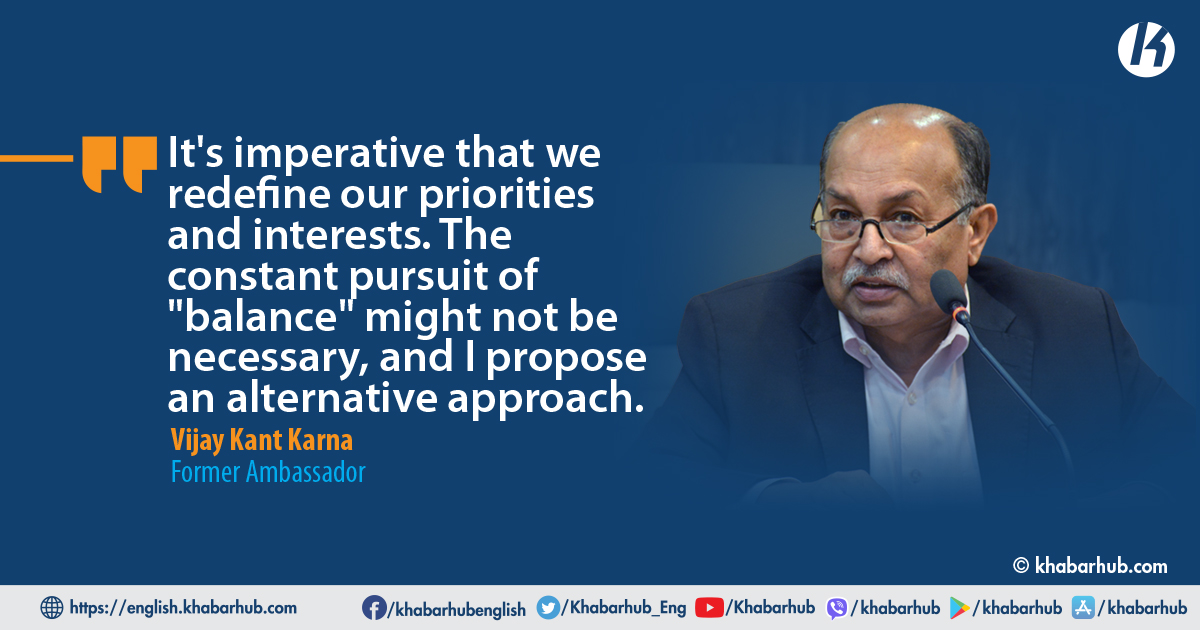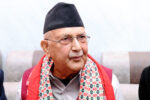The absence of a coherent strategy to navigate Nepal’s foreign policy in light of global changes is evident, revealing a significant gap in our approach.
As power dynamics shift on the world stage, particularly in the regions of Geopolitics Asia Pacific, SAARC, and South Asia, the question arises: what exactly is our strategy?
Regrettably, the answer seems to be missing altogether – there is no discernible strategy in place.
While discussions within the Parliament touch upon theoretical matters, they often lack a clear affiliation and direction.
It’s baffling where this strategy has disappeared to, especially considering that it was relevant not only in the present but has historical roots dating back to the 1970s.
With the presidency transition, questions are bound to arise. Our geopolitical standing places us between two formidable powers, symbolizing a delicate equilibrium.
The landscape of world powers is undergoing rapid transformations, resulting in the emergence of new alliances.
Notably, six more countries have joined BRICS, with 14 other countries eagerly waiting for potential inclusion.
Amidst this shifting terrain, Nepal finds itself positioned between the influential powers of India and China.
The enduring debate regarding alignment with either India or China has persisted since the beginning.
However, it’s imperative that we redefine our priorities and interests. The constant pursuit of “balance” might not be necessary, and I propose an alternative approach.
For instance, Finland provides an interesting model – one that involves adaptability rather than an obsession with balance, acknowledging the evolving nature of international dynamics.
The core of our approach should revolve around safeguarding our national interests, setting clear priorities, and formulating resource utilization policies that are both effective and sustainable.
Regrettably, we lack a contemporary strategy to address these multifaceted challenges and opportunities.
Our commitment to nationalism must be channeled into a strategic framework that maximizes our resource utilization and amplifies our global influence.
A notable example of our missed opportunities lies in our electricity sector.
During a meeting with an ambassador, the question arose as to why Nepal isn’t capitalizing on investing in electricity production. India and China are competing in this realm, yet we seem hesitant to engage as significant players.
This reluctance stems from an outdated perspective that must be discarded.
Rather than employing a one-size-fits-all approach in our relations with India and China, we should assertively communicate our distinct priorities to both nations. A clear delineation of our preferences is essential.
In the face of impending global challenges, Nepal must rise to the occasion with a comprehensive and forward-looking strategy that ensures our relevance and resilience.
This, in turn, should inform our interactions with our allies, leaving no room for ambiguity or misunderstanding.
Let us not be entangled in the MCC debate; our stance on that matter is evident. Just as India belongs to us as much as China does, there is a need to assert our interests unequivocally.
Moreover, our participation in the GSI (Global Security Initiative) demands a well-defined position.
We should openly express that while we value our relationship with China, we will not involve them in our security alliances. This clarity avoids confusion and maintains transparency on our international commitments.
As we approach events like the AATA conference, we need to consider the position we hold within the GSI.
With the presidency transition, questions are bound to arise. Our geopolitical standing places us between two formidable powers, symbolizing a delicate equilibrium.
Our unique cultural heritage and robust multiparty system have allowed us to welcome individuals from diverse backgrounds, regardless of age or economic status.
This diversity poses both challenges and opportunities that can be managed effectively through diplomatic means.
We should recognize these circumstances as a chance for investment, inviting not only those in agreement but even those with differing viewpoints.
This inclusivity further enriches our approach, introducing new perspectives and addressing unforeseen challenges.
In navigating these complexities, we must learn from the principles of geopolitics, particularly as they relate to global figures like the Dalai Lama.
Our strength shouldn’t rely solely on the might of India, America, or China. Instead, we should cultivate our unique strengths that can contribute to international discourse.
In the face of impending global challenges, Nepal must rise to the occasion with a comprehensive and forward-looking strategy that ensures our relevance and resilience.
(Based on the speech of Vijay Kant Karna, former Ambassador to Denmark in a program titled “Challenges and Opportunities in Nepal’s Foreign Policy” at Pavilion Hall in Kathmandu)









Comment